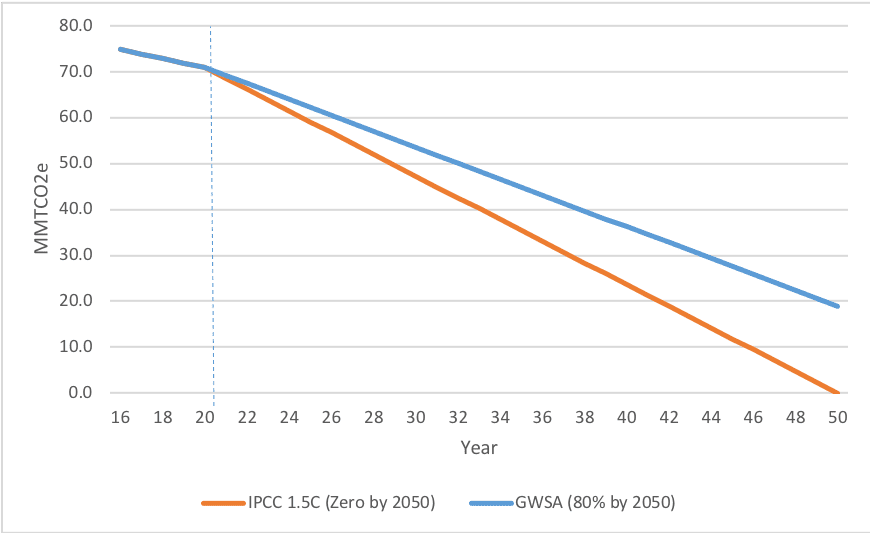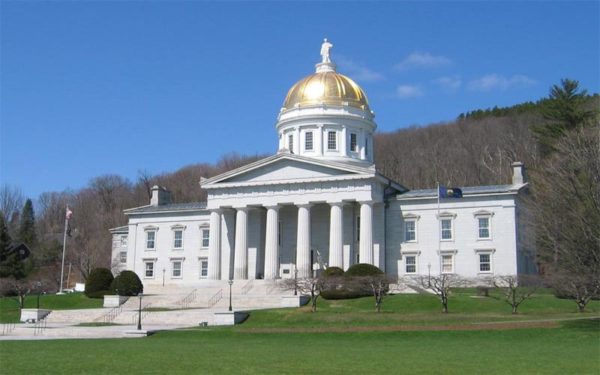
The time for inaction on climate has long since passed. Photo Credit: Shutterstock.
There is still time to stop irreversible climate change if we act now. But we have to act fast or else the consequences will be dire and inescapable.
That, in a nutshell, is what more than 90 of the top climate scientists from 40 countries around the world announced recently in a special report from the United Nations’ Intergovernmental Panel on Climate Change (the IPCC). Until recently, the scientific community had generally agreed that limiting global temperature increases to 2°C by 2050 could avert the worst impacts of climate change. Indeed, that was the goal agreed to in the global Paris Climate Accord in 2016. Reaching that goal has meant making plans to drastically reduce climate pollution by 2050, but not eliminating it altogether.
But this new report affirms – strongly and clearly – what emerging research had already suggested: that 2°C is not enough and that we must cut carbon pollution completely by 2050. And we must do more – and pick up the pace – if we’re to reach this new threshold.
This report is sobering, but it is not a reason to despair over our climate future. Together with its strong warning, the scientific community also reaffirmed that meeting a more aggressive goal and timeline for ending climate pollution is still possible – both through current technology and with the innovation that has driven the global economy for decades. Renewable solar and wind power need to provide the lion’s share of our energy, and we need to work fast to build out these industries while doubling down on energy efficiency, too.
Here in New England, we have been a leader on cutting carbon emissions. But now we must do more – we can and must harness our collective creativity, our drive for new industry, and our political will to lead a national revolution to transform our economy and save our climate.
To Avoid Irreversible Climate Damage, We Need to Transform Our Economy, and Fast
The IPCC report extensively reviewed and explained some 6,000 scientific sources. Its ultimate conclusion: to avoid irreversible climate change and the widespread harm it will cause to people and the environment, the world must limit the average global temperature rise to no more than 1.5°C by 2050.
What does that mean in human terms? We must cut our net emissions economy wide – meaning from all sources and all sectors, including transportation, buildings, electricity, and industry – to zero by 2050.
Up until now, we’ve all been working on the assumption that, to limit irreversible climate change, we must cut our emissions by 80 percent below 1990 levels by 2050. Most New England states have pledged to meet this goal, while Massachusetts and Connecticut have enshrined it into law through their Global Warming Solutions Acts.
In Massachusetts, for example, that meant cutting statewide emissions from today’s levels of about 73 or 74 million metric tons of carbon pollution each year to fewer than 19 million tons in 2050. That’s a huge cut, but it still allowed for some emissions from sources that may be hard to modify, like commercial aircraft or certain industries. Now that option is no longer on the table – here in Massachusetts, New England, the country, or the globe.

To save the climate while maintaining our economy and basic way of life, we need to get rid of 100 percent of today’s emissions – all emissions, no exceptions – by 2050. That means speeding up our transition to clean renewable sources, for one thing. It also means, according to IPCC scientists, that we’ll almost certainly need to harness new technologies to capture and store carbon directly from the air and from a very limited number of hard-to-replace emitters.
This Challenge is Enormous, But Not Insurmountable
The challenge is immense. But the 90 scientists in the IPCC report also agree, after running almost 80 “how-can-we-get-there” scenarios, that we in fact can get to zero emissions with cost-effective technologies we, for the most part, have on-hand today.
It won’t be easy, of course, but with “rapid and far-reaching transitions in energy, land, urban and infrastructure (including transport and buildings), and industrial systems,” the report concludes, we can reach net-zero emissions world-wide by 2050. Each successful scenario has one thing in common: renewable solar and wind must power 70 to 85 percent of all our energy needs.
So there is – quite literally – no time to waste! New England states have already taken concrete action towards cutting emissions with efforts to grow renewable energy, build out infrastructure and incentives for driving electric vehicles, and invest in energy efficiency. But this report should send a strong signal to leaders in both the public and private sectors that there is, quite literally, no time to spare.
We must reset our emissions reduction framework to reflect the new “best science” goal. Where we have laws on the books that mandate cuts in carbon pollution (such as Massachusetts), we need to work with new urgency to change their goals to the new net-zero-by-2050 limit. In New England states that have only pledged to reduce emissions, but not set enforceable limits, we must enact legislation to put us on a zero-emissions path. And we need a comprehensive regional plan on how we are all going to work together to make the new clean energy economy a reality – building new jobs in New England while protecting our future for ourselves and our kids.
The time for inaction on climate has long since passed. CLF will be holding New England’s leaders accountable for their climate policies – and we know that you will, too.




